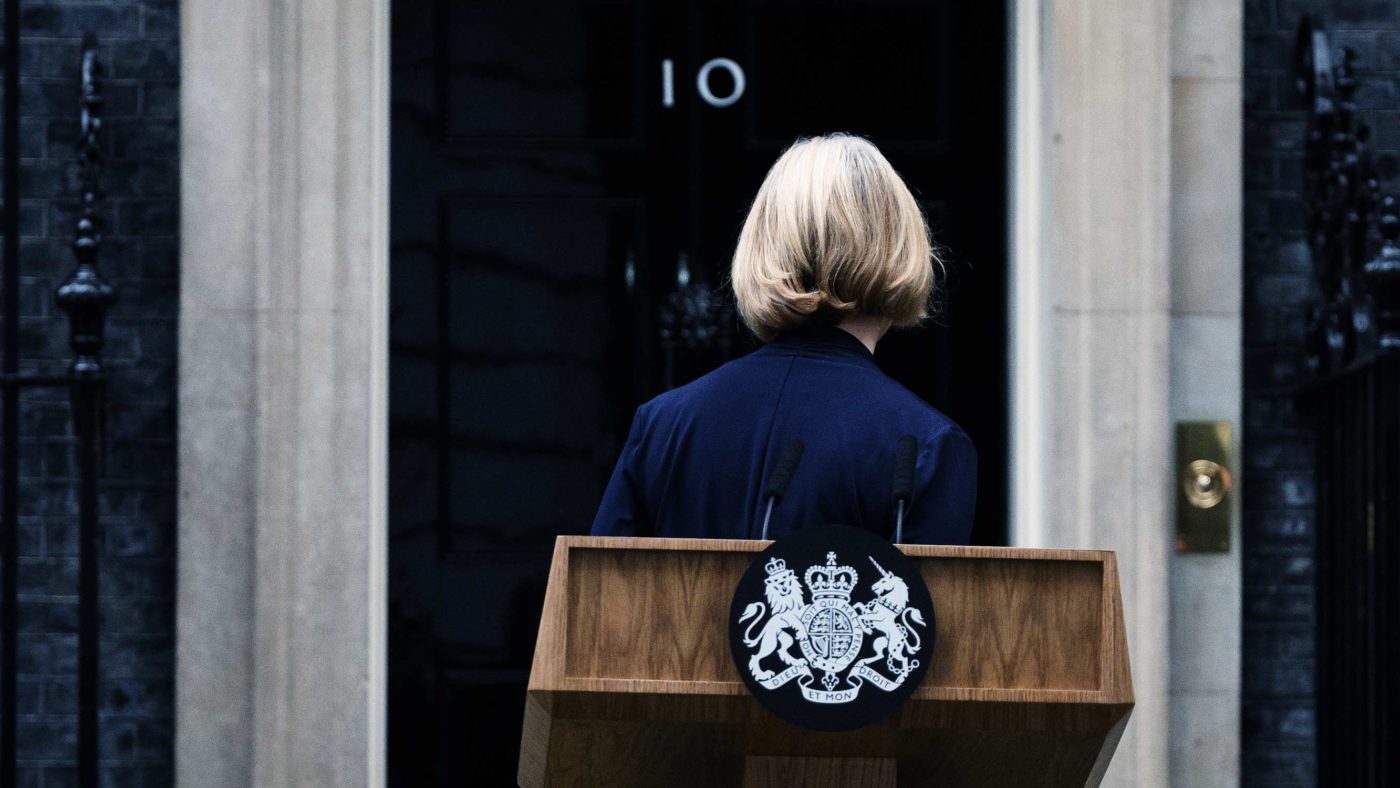And just like that, she’s gone. Liz Truss has set the record for the shortest-serving prime minister in British history. I would say it is unlikely ever to be challenged, but you never know what a hard winter will bring.
Plenty of Conservatives will be breathing a sigh of relief. There was no prospect of her leading the party into the next election, and this decision avoids what could have been weeks or months of excruciating drift.
Or does it? Although Truss’s departure will probably lift Tory poll numbers a bit, the fundamental problem I outlined in my previous piece for CapX hasn’t really gone anywhere. The Government still needs to find tens of billions of pounds worth of spending cuts, and Conservative MPs have no intention of passing them.
A change of leader probably won’t break this impasse. For understandable reasons – nobody wants another excruciating six-week leadership election – the widespread assumption is that MPs need to find a ‘unity candidate’. But any would-be leader who seeks to please all sides will find themselves master of none.
This was the tragedy of Boris Johnson. He had the skill to spin up an historic majority, but refused to wield it. He hoarded his political capital and instead of investing it, frittered it away to nothing, for nothing. But even he was more a symptom of the problem than the root of it.
The Tories seem to have lost the capacity for recognising important trade-offs and making difficult choices. They mouth shibboleths about low taxes and a small state, but shy away from any of the sort of structural reforms which might make either of those things practicable. They show a dim awareness of the housing crisis, but fiercely oppose housing in their areas.
All a unity candidate can do is continue to kick these cans down what little road the Government has left to it. It isn’t a solution to anything.
What actually unites the Conservative Party, historically, is strength. Margaret Thatcher didn’t need wild talk of removing the whip from scores of MPs to drive forward her programme, and the party at that point was not carved in her image as it was later. A leader with a vision, a mandate, and the will to act would go a long way towards rallying the Tory troops.
There would, of course, be battles to fight. But that’s how authority is won. A unity candidate who triumphed over nobody has won a mandate for little.
Perhaps, in this case, that’s all right. If the Conservatives have written off actually winning the next election, it would perhaps be sufficient to pick someone likeable and capable enough and have them commit to delivering as much of the 2019 manifesto as possible before the next election.
But in the long run, that battle of ideas is going to have to be joined, and when it is, the Truss debacle will be a millstone around her side of the argument. The mini-Budget was not the radical libertarian experiment described by its more hysterical critics, but it was a multi-megaton political catastrophe.
In a strange way, Truss has perhaps served to accelerate and lock in the very realignment her fleeting premiership was a reaction against. Johnson scouted the political terrain upon which the next Conservative majority, if there is one, could be built. That he lacked the capacity to fortify it doesn’t diminish that.
What hope, in contrast, can the small-staters offer? None have yet produced an electorally saleable path around the brute fact that this country is getting older, and the state must therefore continue to get bigger and more expensive just to stand still. The UK is becoming a country where workers (and only workers) pay excruciating taxes for poorer and poorer services.
In theory, there are good free-market answers to this: reforms to pensions, planning, healthcare and more that could improve service, bring in private capital to ease the burden on the public purse, and more equitably distribute that burden onto the shoulders of rich older people who benefit most from the current arrangements.
But there’s no evidence that the Conservatives are willing or able to pass any of that. And if they’re not, the free-market wing faces an uphill battle.
Click here to subscribe to our daily briefing – the best pieces from CapX and across the web.
CapX depends on the generosity of its readers. If you value what we do, please consider making a donation.


